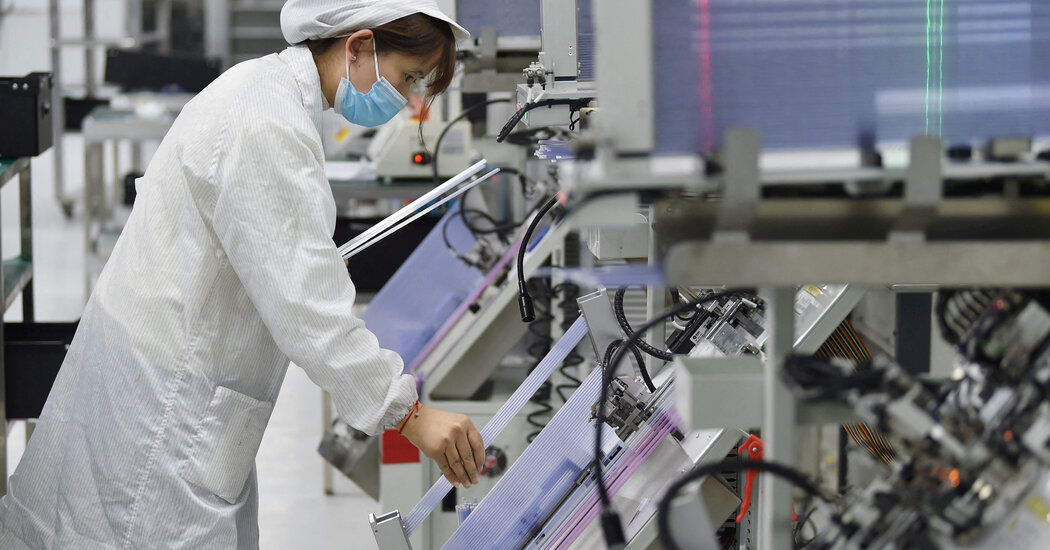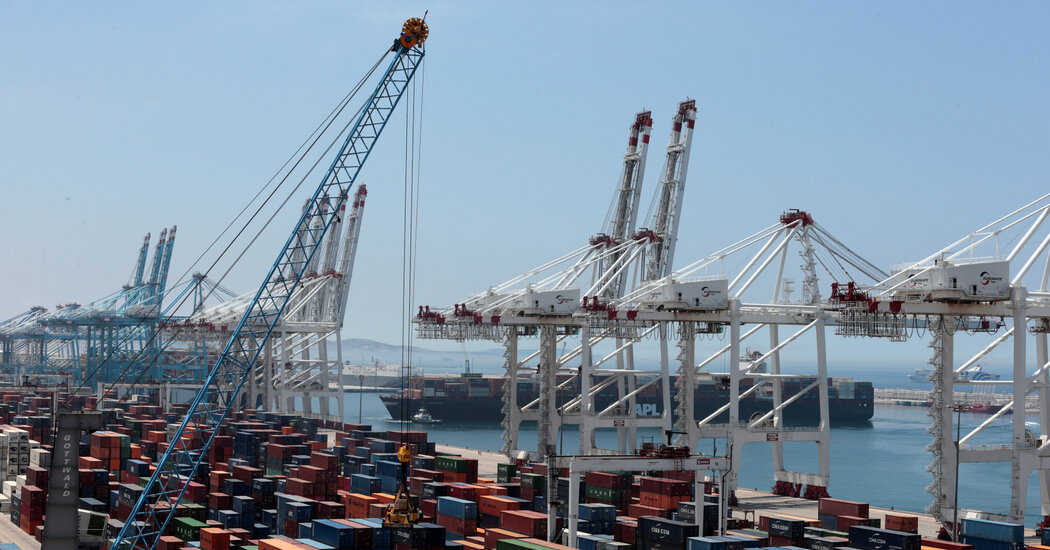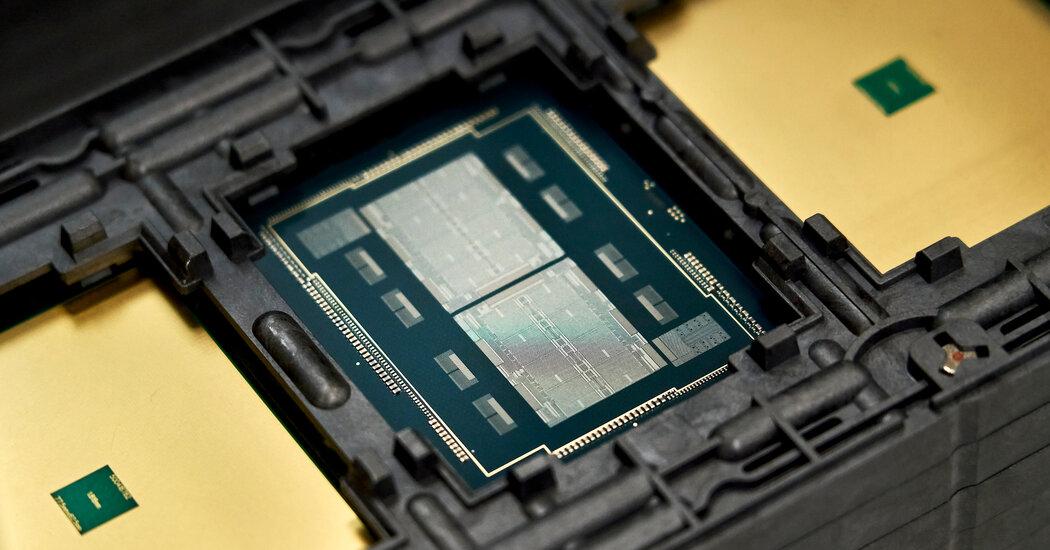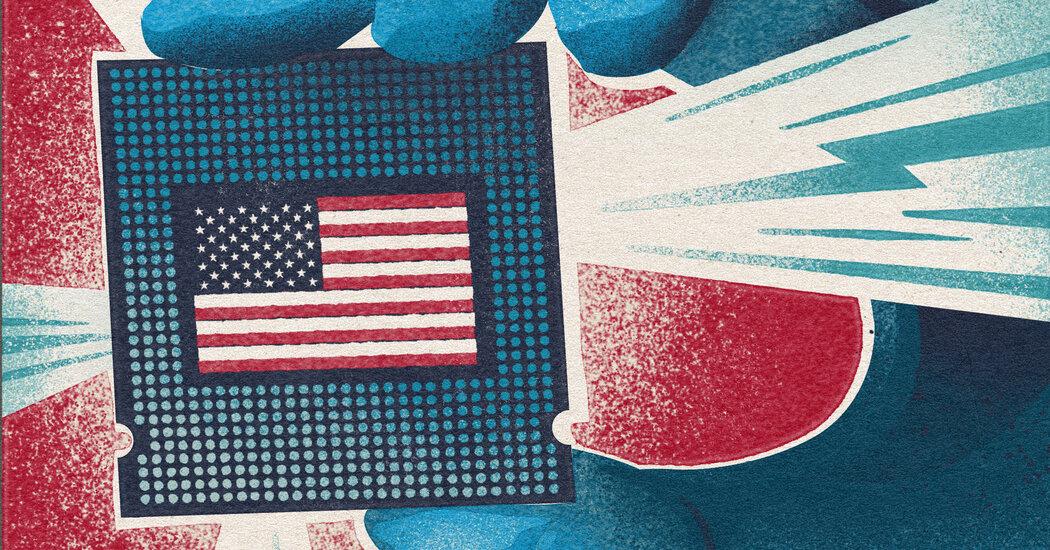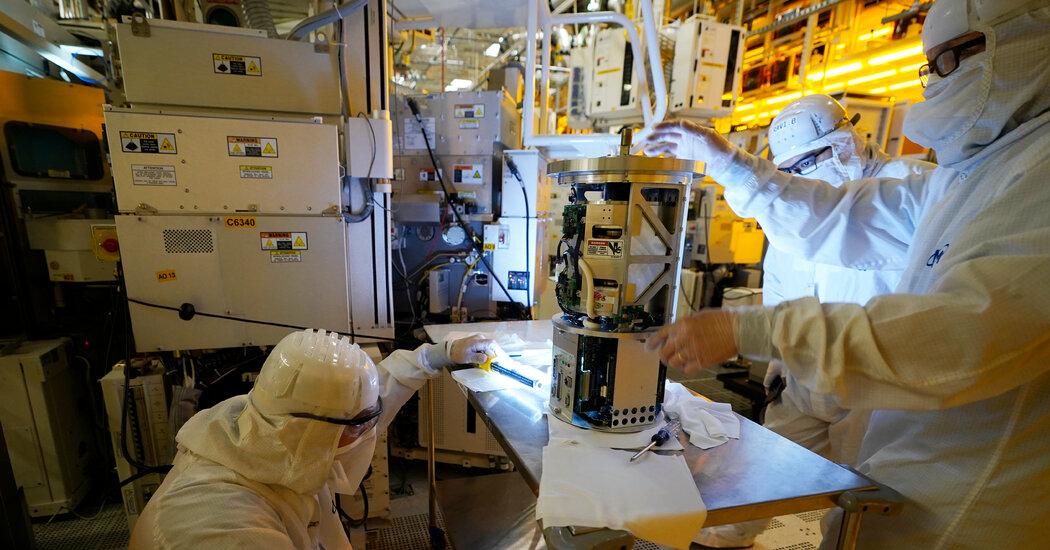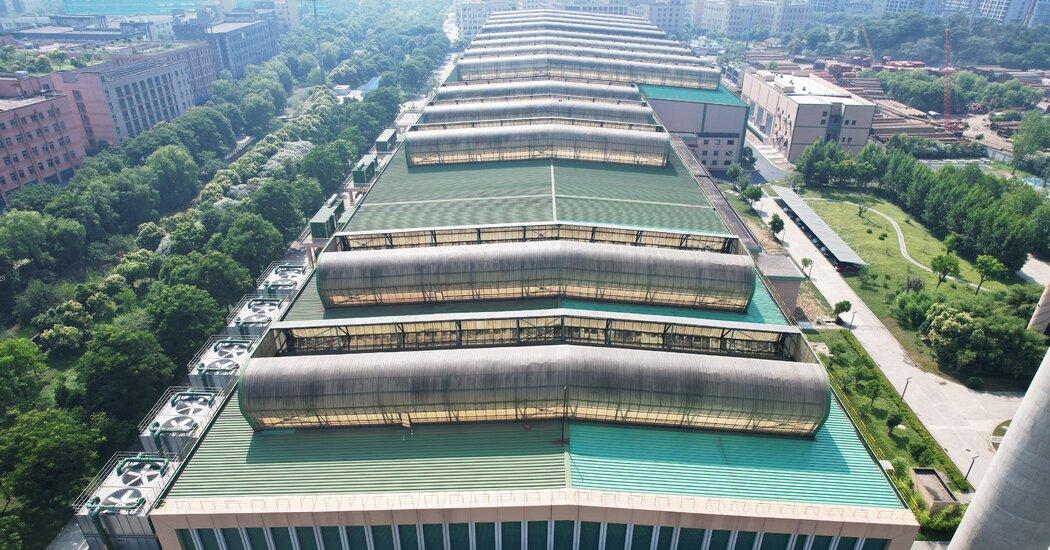A congressional investigation has determined that five American venture capital firms invested more than $1 billion in China’s semiconductor industry since 2001, fueling the growth of a sector that the United States government now regards as a national security threat. Funds supplied by the five firms — GGV Capital, GSR Ventures, Qualcomm Ventures, Sequoia Capital and Walden International — went to more than 150 Chinese companies, according to the report, which was released Thursday by both Republicans and Democrats on the House Select Committee on the Chinese Communist Party. The…
Tag: Intel Corporation
Chinese Traders and Moroccan Ports: How Russia Flouts Global Tech Bans
Shortly after Russia invaded Ukraine last year, engineers at Convex, a Russian telecommunications company, needed to find American equipment to transmit data to the country’s feared intelligence service. But no gear was flowing in after Western nations imposed sweeping new trade limits on Russia. Convex’s employees soon found a solution. While Cisco, a U.S. tech provider, had halted sales to Russia on March 3, 2022, Convex’s engineers easily obtained the Cisco gear they needed through an obscure Russian e-commerce site called Nag, which had gotten around international trade restrictions by…
How the Big Chip Makers Are Pushing Back on Biden’s China Agenda
A year after the Biden administration took its first major step toward restricting the sale of semiconductors to China, it has begun drafting additional limits aimed at denying Beijing the technology critical to modern-day weapons. But in recent months, its progress has been slowed as American chip companies have pushed back with a blunt warning: Cutting sales to China would gut their businesses and derail the administration’s plan to build new semiconductor factories in the United States. Since July, Nvidia, Intel and Qualcomm, three of the world’s largest chip makers,…
Intel Acquisition of Tower Semiconductor Is Scuttled by China
China has effectively scuttled a $5.4 billion deal by Intel, the Silicon Valley semiconductor giant, in the latest sign of the frayed business ties between China and the United States. Intel, which has long had operations in China, said Wednesday that it had “mutually agreed” to terminate a planned merger with Tower Semiconductor, an Israeli chip manufacturer. The announcement came after China’s antitrust regulators failed to rule on the transaction before a deadline set by the companies. The failure of Intel to complete the acquisition of Tower could send a…
Biden Administration Weighs Further Curbs on Sales of A.I. Chips to China
The Biden administration is weighing additional curbs on China’s ability to access critical technology, including restricting the sale of high-end chips used to power artificial intelligence, according to five people familiar with the deliberations. The curbs would clamp down on the sales to China of advanced chips made by companies like Nvidia and Advanced Micro Devices and Intel, which are needed for the data centers that power artificial intelligence. Biden officials have said that China’s artificial intelligence capabilities could pose a national security threat to the United States by enhancing…
What is in the CHIPS Act, Aimed at Childcare Expansion and National Security
The Biden administration unveiled new rules Tuesday for its “Chips for America” program to build up semiconductor research and manufacturing in the United States, beginning a new rush toward federal funding in the sector. The Commerce Department has $50 billion to hand out in the form of direct funding, federal loans and loan guarantees. It represents one of the largest federal investments in a single industry in decades and highlights deepening concern in Washington about America’s dependence on foreign chips. Given the huge cost of building highly advanced semiconductor facilities,…
U.S. Pours Money Into Chips, but Even Soaring Spending Has Limits
In September, the chip giant Intel gathered officials at a patch of land near Columbus, Ohio, where it pledged to invest at least $20 billion in two new factories to make semiconductors. A month later, Micron Technology celebrated a new manufacturing site near Syracuse, N.Y., where the chip company expected to spend $20 billion by the end of the decade and eventually perhaps five times that. And in December, Taiwan Semiconductor Manufacturing Company hosted a shindig in Phoenix, where it plans to triple its investment to $40 billion and build…
Chip Makers, Once in High Demand, Confront Sudden Challenges
A few months ago, makers of computer chips seemed on top of the world. Customers could not get enough of the small slices of silicon, which act as the brains of computers and are needed in just about every device with an on-off switch. Demand was so strong — and U.S. dependence on a foreign manufacturer so worrying — that Democrats and Republicans agreed in July on a $52 billion subsidy package that included grants to build new chip factories in America. U.S. chip makers such as Intel, Micron Technology,…
U.S. Said to Plan New Limits on China’s A.I. and Supercomputing Firms
The Biden administration has faced some criticism that it has moved slowly to curb China’s access to cutting-edge U.S. technology. For many administration officials, China’s recent progress in clearing a key technological hurdle in semiconductor manufacturing underscored the urgent need for more expansive regulation in the industry, people familiar with the discussions said. The export controls are part of a bigger strategy from the Biden administration to starve China of key technologies while pumping money into U.S. chip-making factories. The measures come as Beijing ramps up its aggression toward Taiwan,…
How Silicon Chips Rule the World
When I first arrived in Taiwan as a college student in the summer of 1973, there was no ambiguity whatsoever about the American role on the island. Over the previous two years, President Richard M. Nixon and his national security adviser, Henry Kissinger, had opened relations with the People’s Republic of China in Beijing. But a short distance away in Taiwan, which the People’s Republic considers a breakaway province, U.S. Air Force jets soared overhead. There was a U.S. base right in Taipei, within walking distance of my favorite bookstore.…
